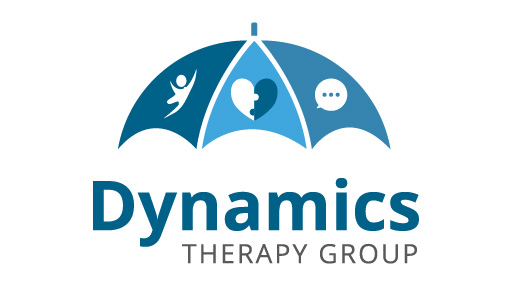
Executive functions are the cognitive processes that govern our ability to plan, organize, initiate, and complete tasks. Our team of top occupational therapist in Singapore have witnessed the significant impact that executive functions can have on learning and overall success. In recent years, there has been a growing emphasis on the importance of these skills in education and daily life. In this blog post, we will delve into the intricacies of executive functions and why they are considered crucial for learning and success.
- Understanding Executive Functions: Defining the Cognitive Processes
We will begin by defining executive functions and breaking down the key cognitive processes involved, such as working memory, cognitive flexibility, and inhibitory control. This section will provide a comprehensive understanding of the different aspects of executive functions and how they work together to facilitate effective problem-solving, decision-making, and goal achievement.
What are the Executive Functions?
Executive functions are a set of cognitive processes that are necessary for the cognitive control of behaviour. These processes enable us to plan, focus attention, remember instructions, and juggle multiple tasks successfully. They can be broadly categorized into three main areas: working memory, cognitive flexibility, and inhibitory control, which includes self-control, impulse control, and emotional regulation.
- Working Memory: This is our ability to hold and manipulate information in our minds over short periods. It’s like our brain’s notepad, where we jot down information that we’ll need for future tasks. Working memory is crucial for activities like following multi-step instructions, solving mental arithmetic problems, or keeping track of a conversation.
- Cognitive Flexibility: Also known as flexible thinking, this is the ability to switch between tasks or thoughts, adapting to new rules or priorities. It’s about being able to see things from different perspectives and quickly adjust to new situations, rules, or strategies. Cognitive flexibility is required for activities like understanding other people’s point of view, adjusting to changes in schedule, or finding a solution to a problem when the firs attempt doesn’t work.
- Inhibitory Control: This encompasses several key areas:
Self-Control: It is the ability to resist temptations and refrain from acting impulsively, allowing us to make thoughtful, considered decisions and actions.
Impulse Control: This is closely related to self-control and is the capacity to think before we act, helping to resist immediate temptations in favor of longer-term goals.
Emotional Regulation: This is the ability to manage and respond to an emotional experience in a socially acceptable and appropriate way. It enables us to keep our emotions in check and not let them cloud our judgment or decision-making. - Planning and Prioritizing: These are higher-level executive functions. Planning involves envisioning future tasks, setting goals, and determining the steps needed to achieve these goals. Prioritizing is about identifying the order in which tasks should be performed to reach a particular goal. These skills are crucial in everyday tasks such as completing a project at work or preparing a meal.
- Planning and Sequencing: While planning refers to envisioning future tasks, setting goals, and determining the steps needed to achieve these goals, sequencing is the ability to logically order these steps. For instance, when baking a cake, we need to follow a specific sequence of steps in the correct order (sequencing), and we also need to plan ahead, by gathering ingredients and preheating the oven (planning). Both of these skills are crucial for problem-solving and completing tasks efficiently.
- Speed of Processing: This is the pace at which our brain processes information. It’s essentially how quickly we can
understand and react to information we receive, whether it be visual (letters and numbers), auditory (language), or movement (physical coordination). Speed of processing is vital for many everyday tasks, such as driving, where we need to rapidly process and respond to various signals and events. - Reaction Time: This is a measure of how quickly an individual can respond to a stimulus. It’s an important aspect of executive functions as it affects our ability to safely and effectively interact with our environment. Faster reaction times can help in situations that require quick decision-making or immediate physical responses, like stopping a car suddenly to avoid a collision.
These different aspects of executive functions often work together in coordination. For example, to make a decision, we might need to use our working memory to consider relevant information, our cognitive flexibility to view the problem from different angles, our impulse control to avoid rushing into a decision, and our planning skills to foresee the potential consequences of our decision. Therefore, executive functions play a vital role in our ability to function effectively in our daily lives, facilitating problem-solving, decision- making, and goal achievement. As occupational therapists, our role is to support the development and application of these executive functions, enabling individuals to perform their daily activities with independence and efficiency. Understanding these aspects helps in creating a well-rounded intervention program to improve an individual’s ability to carry out their daily tasks independently and efficiently.
- The Role of Executive Functions in Learning
This section will explore how executive functions play a critical role in various learning processes, such as organizing information, planning and executing tasks, and monitoring progress. We will also discuss the impact of executive function skills on academic performance and overall success in school.
In this section we will explore how executive functions develop gradually throughout childhood and adolescence, with significant growth occurring during the early years. This section will examine the developmental trajectory of executive functions and the factors that can influence their growth, such as genetics, environment, and early experiences.
Significant Growth in Early Years: Research has demonstrated that executive functions experience a significant growth spurt during the preschool years. In fact, a study published in the “Annual Review of Psychology” in 2012 noted that between the ages of 3 to 5, children make substantial gains in tasks that measure executive functions, such as delay of gratification tasks and tasks that require flexible thinking and problem-solving.
Developmental Trajectory: The developmental trajectory of executive functions varies among individuals. A 2018 study in the journal “Developmental Psychology” found that while some children may excel early in certain executive functions (like impulse control), they might lag in others (like working memory). This uneven development can continue throughout childhood and adolescence.
Influence of Genetics: There is evidence to suggest that genetics play a role in the development of executive functions. A study published in “Current Directions in Psychological Science” in 2016 pointed out that individual differences in executive functions are partly heritable, with estimates typically ranging from 30% to 60%.
Influence of Environment: The environment, including socio-economic status and quality of parental care, can also impact the development of executive functions. For instance, a 2011 study in the “Proceedings of the National Academy of Sciences” found that children from low-income families performed worse on executive function tasks compared to their wealthier peers.
Influence of Early Experiences: Early experiences, especially those that are stressful or traumatic, can negatively impact the development of executive functions. According to a 2012 study published in the “American Journal of Public Health,” children who experienced two or more adverse childhood experiences had more difficulty with executive function tasks compared to children who had not experienced any adversity.
- Development of Executive Functions: A Lifelong Journey
In this section we will explore how executive functions develop gradually throughout childhood and adolescence, with significant growth occurring during the early years. This section will examine the developmental trajectory of executive functions and the factors that can influence their growth, such as genetics, environment, and early experiences.
Significant Growth in Early Years: Research has demonstrated that executive functions experience a significant growth spurt during the preschool years. In fact, a study published in the “Annual Review of Psychology” in 2012 noted that between the ages of 3 to 5, children make substantial gains in tasks that measure executive functions, such as delay of gratification tasks and tasks that require flexible thinking and problem-solving.
Developmental Trajectory: The developmental trajectory of executive functions varies among individuals. A 2018 study in the journal “Developmental Psychology” found that while some children may excel early in certain executive functions (like impulse control), they might lag in others (like working memory). This uneven development can continue throughout childhood and adolescence.
Influence of Genetics: There is evidence to suggest that genetics play a role in the development of executive functions. A study published in “Current Directions in Psychological Science” in 2016 pointed out that individual differences in executive functions are partly heritable, with estimates typically ranging from 30% to 60%.
Influence of Environment: The environment, including socio-economic status and quality of parental care, can also impact the development of executive functions. For instance, a 2011 study in the “Proceedings of the National Academy of Sciences” found that children from low-income families performed worse on executive function tasks compared to their wealthier peers.
Influence of Early Experiences: Early experiences, especially those that are stressful or traumatic, can negatively impact the development of executive functions. According to a 2012 study published in the “American Journal of Public Health,” children who experienced two or more adverse childhood experiences had more difficulty with executive function tasks compared to children who had not experienced any adversity.
- Identifying and Supporting Executive Function Challenges
Some children may struggle with executive functions due to various factors, such as ADHD or other learning differences. This section will discuss how to identify executive function challenges and provide practical strategies to support these children in developing their skills and achieving their full potential.
Executive functions play a crucial role in our ability to perform a range of tasks, from simple ones like getting dressed to more complex tasks like problem-solving. In individuals, particularly children with ADHD and other learning differences, these executive functions may be disrupted or delayed, which can manifest in various ways:
Working Memory Difficulties: Children with ADHD often struggle with working memory. They may have difficulty remembering instructions, following through on tasks, or keeping track of their belongings. For instance, a child might have trouble remembering the steps of a multi-step problem in math or might frequently forget homework assignments.
Impaired Cognitive Flexibility: Children with ADHD often have difficulty with cognitive flexibility. They might struggle to switch from one task to another or have trouble adapting to changes in rules or routines. This can make it hard for them to transition between activities at home or school and can lead to frustration and behavioral issues.
Inhibitory Control Problems: Issues with impulse control and self-control are hallmark symptoms of ADHD. Children may act without thinking about the consequences, have difficulty waiting their turn, or struggle to manage their emotional responses. They might also find it hard to resist distractions, which can impact their focus and productivity.
Challenges in Planning and Prioritizing: ADHD can make it difficult for children to plan and prioritize tasks. They may
struggle with organizing their work, managing their time effectively, or identifying the most important tasks to focus on.
This can affect their ability to complete schoolwork and can lead to feelings of overwhelm.
Difficulties with Speed of Processing and Reaction Time: Some children with ADHD might process information more slowly, which can make it harder for them to keep up with lessons in class. Alternatively, they might have quick reaction times but struggle to respond accurately due to impulsivity.
Challenges in Planning and Sequencing: ADHD and other learning differences can also create difficulties with planning and sequencing. Children may struggle to anticipate future events, create plans to reach their goals, or arrange actions in an effective order. This can be particularly challenging in academic assignments, where they might have trouble starting a project or writing an essay because they can’t figure out the sequence of steps they need to take.
- Enhancing Executive Functions: Tips and Techniques for Success
In this section, we will share evidence-based strategies, tools, and techniques that can be used to enhance executive functions in both children and adults. These practical tips can be applied in daily life, in educational settings, or as part of a targeted intervention by Occupational Therapists to improve executive function skills and promote lifelong success.
How can Occupational Therapist Help?
As an occupational therapist, we can employ several strategies to help children with ADHD or other learning differences improve their executive functions:
Breaking Down Tasks: Simplify complex tasks into smaller, manageable steps. This can make tasks less overwhelming and help children keep track of what they need to do.
Use of Visual Aids: Visual aids like charts, diagrams, or color- coded systems can be used to help children organize their work, remember steps, or manage their time.
Repetition and Routine: Regular practice and establishing routines can help improve working memory and cognitive
flexibility. For instance, having a set routine for homework can make the process more predictable and manageable.
Mindfulness and Relaxation Techniques: These can help improve self-control and emotional regulation. Techniques like
deep breathing, yoga, or mindfulness exercises can help children learn to manage their impulses and emotions better.
Use of Assistive Technology: There are various apps and software designed to help with planning, organizing, and time management. These can be particularly useful for older children and teenagers.
Speed of Processing Activities:
o Cognitive Skills: Games that require quick thinking can be useful, such as matching games, memory games, or timed puzzles. Digital games or apps that promote quick decision making can also be beneficial.
o Motor Skills: Activities like sports or video games can help improve motor speed. Sports that require quick responses, like table tennis or badminton, are particularly good. In addition, activities that require precise timing and coordination, like playing a musical instrument or dance, can also enhance speed of processing for motor skills.
Sequencing and Planning Activities:
o Visual Schedules: Use visual schedules to help the child understand the sequence of daily tasks and to anticipate what’s coming next. This can be particularly helpful for morning and bedtime routines.
o Step-by-Step Guides: Break down complex tasks into a series of steps. Write these steps down in a list and let the child check off each step as they complete it. This can be used for academic tasks, like writing an essay, as well as everyday tasks, like making a sandwich.
o Role-Playing and Simulation Games: Games that involve multiple steps or stages can be helpful in teaching planning and sequencing. This might include board games, video games, or physical play activities.
The impact of these difficulties can extend to everyday tasks, too. For instance, children might struggle with tasks such as getting ready for school in the morning, which requires a series of steps to be done in a particular order.
Remember, improving executive functions is a gradual process and consistency is key. Regular practice, patience, and positive reinforcement will go a long way in helping children develop these crucial skills.
Remember, every child is unique, and strategies should be tailored to meet their specific needs and strengths. The goal is to help them develop their executive function skills and achieve their full potential, in spite of any learning differences they might have.
Conclusion
Executive functions are the hidden pillars of learning and success that often go unnoticed. Understanding and nurturing these crucial cognitive processes can empower individuals to thrive in various aspects of life, from academics to social interactions and beyond. This blog post aims to shed light on the importance of executive functions and provide valuable insights and resources for supporting their development in individuals of all ages.
References:
- “Development of Executive Functions through Late Childhood and Adolescence in an Australian Sample” published in the journal Developmental Neuropsychology, 2002.
- “The Unity and Diversity of Executive Functions and Their Contributions to Complex ‘Frontal Lobe’ Tasks: A Latent Variable Analysis” published in Cognitive Psychology, 2000.
- “Building a Foundation for Prosperity on the Science of Early Childhood Development” published in Pathways Magazine, Winter 2012.
- “Genetic and environmental influences on executive functions in children: Longitudinal Analysis” published in the British Journal of Developmental Psychology, 2016.
- “Early experiences and the development of emotional regulation in children: Review and future directions” published in the journal Behavioural Brain Research, 2020.
- “Socioeconomic status and the brain: mechanistic insights from human and animal research” published in Nature Reviews Neuroscience, 2010.
- “Childhood adversity and neural development: deprivation and threat as distinct dimensions of early experience” published in Neuroscience and Biobehavioral Reviews, 2014.
- “Effects of stress throughout the lifespan on the brain, behaviour and cognition” published in Nature Reviews Neuroscience, 2009.




